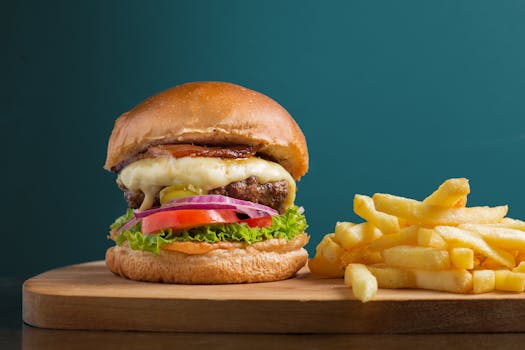Contact Us (720) 964-1335 or (901) 675-6125

Introduction
When you’re on a weight loss journey, it’s common to hear mixed opinions about “cheat meals.” Some say they’re a necessary break from strict dieting, while others warn they can undo all your progress. If you’ve ever wondered whether it’s okay to have pizza on Friday night or enjoy cake at a birthday party, you’re not alone.
Here’s the reality: one meal does not define your success. What matters most is your long-term consistency and mindset around food. A cheat meal isn’t automatically good or bad, it’s how you approach it that makes the difference. In this article, we’ll explore the pros and cons of cheat meals, how they may impact your progress, and strategies for enjoying them without sabotaging your goals.
What is a Cheat Meal?
A cheat meal typically refers to a meal where you indulge in foods outside your usual healthy eating plan. This might mean enjoying fast food, sugary desserts, or higher-calorie dishes that you wouldn’t eat every day.
Many people associate cheat meals with a “free pass” to eat whatever they want. But it’s important to understand: one meal isn’t going to undo weeks of progress. At the same time, how you frame it matters. When cheat meals become an all-day (or all-weekend) event, they can slow down progress and reinforce an “all or nothing” mindset.
Can Cheat Meals Affect Weight Loss Progress?
Here are some ways cheat meals may influence your weight loss journey:
Short-Term Setback:
A cheat meal can increase your calorie intake for the day, which may temporarily slow weight loss. But the long-term effect is minimal unless it becomes a frequent habit.
Psychological Benefits:
Allowing yourself to enjoy favorite foods can actually improve adherence to your plan. When you know nothing is completely off-limits, you’re less likely to feel deprived and more likely to stick with healthy eating overall.
Metabolic Boost:
Some research suggests that higher-calorie meals may temporarily increase metabolism through a boost in leptin (a hormone that regulates energy and hunger). While the effect is short-lived, it can help break through mental or physical plateaus.
Potential Risks:
Cheat meals can sometimes trigger guilt, shame, or a cycle of restriction and overeating. For emotional eaters, this may feel like “falling off the wagon.” The key is shifting how you view these meals — as part of balance, not failure.
How to Manage Cheat Meals Without Derailing Progress
The secret to enjoying cheat meals is moderation and mindfulness. You can absolutely fit them into your lifestyle with a little strategy:
Plan Ahead
Instead of spontaneously indulging, plan your cheat meal for a special occasion or at the end of the week. This helps avoid sliding into an unplanned cheat day, or worse, a cheat weekend.
Portion Control
Cheat meals don’t have to mean cheat feasts. You can enjoy a slice of pizza or a burger without needing to finish the whole box or plate. Keep portions moderate so you enjoy the taste without overloading your system.
Balance with Movement
A planned cheat meal is easier to balance if you’re also moving your body. Consider adding a walk, workout, or active recovery session to help offset extra calories and keep your metabolism steady.
Mindful Eating
Slow down, savor every bite, and eat without distraction. When you pay attention, you’ll likely feel satisfied with less, and enjoy the experience more.
Shift the Language
At Ample Health & Wellness, I often encourage clients to reframe “cheat meals” as “treat meals” or “flex meals.” Words matter. A “cheat” implies guilt, while a “treat” reinforces that food can be enjoyed in moderation without shame.
How Ample Health & Wellness Can Help
At Ample Health & Wellness, I teach women over 40 that food freedom is part of a sustainable weight loss journey. Cheat meals don’t have to derail your progress when they’re approached with balance and strategy.
✔️ Personalized Coaching: Together, we create a plan that allows for flexibility without losing sight of your goals.
✔️ Mindset Support: We work on breaking cycles of guilt, emotional eating, and “all-or-nothing” thinking.
✔️ Sustainable Habits: Instead of a quick fix, you’ll learn how to integrate favorite foods in a way that supports weight loss and long-term health.
My FRESH Framework is designed for this:
- Food Freedom – No foods are off-limits, just balanced.
- Rewire Mindset – Shift how you think about “cheating” vs. nourishing.
- Elevate Habits – Build daily routines that make room for real life.
- Simplify Environment – Reduce temptations while allowing flexibility.
- Honor Whole Health – Support your physical and emotional well-being.
Final Thoughts
Cheat meals don’t have to derail your weight loss journey. They can actually make it more sustainable when approached with intention. It’s not about perfection; it’s about balance, flexibility, and consistency over time.
Remember, one meal will not undo your hard work. What matters is what you do most of the time, not what you do once in a while. By planning ahead, practicing mindful eating, and releasing guilt, you can enjoy cheat meals as part of a healthy, holistic approach to weight loss.
And if you need support navigating food freedom while still making progress, Ample Health & Wellness is here to help. Together, we can create a plan that allows you to reach your goals …without giving up the foods you love.

References
Micha, R., Peñalvo, J. L., Cudhea, F., & Capewell, S. (2017). Association Between Dietary Factors and Mortality From Heart Disease, Stroke, and Type 2 Diabetes in the United States. JAMA, 317(9), 912-924. https://doi.org/10.1001/jama.2017.0947
Krebs, N. F., & O’Connor, S. M. (2015). Dietary Approaches to Weight Loss. American Journal of Clinical Nutrition, 101(1), 47-56. https://doi.org/10.3945/ajcn.114.084477
